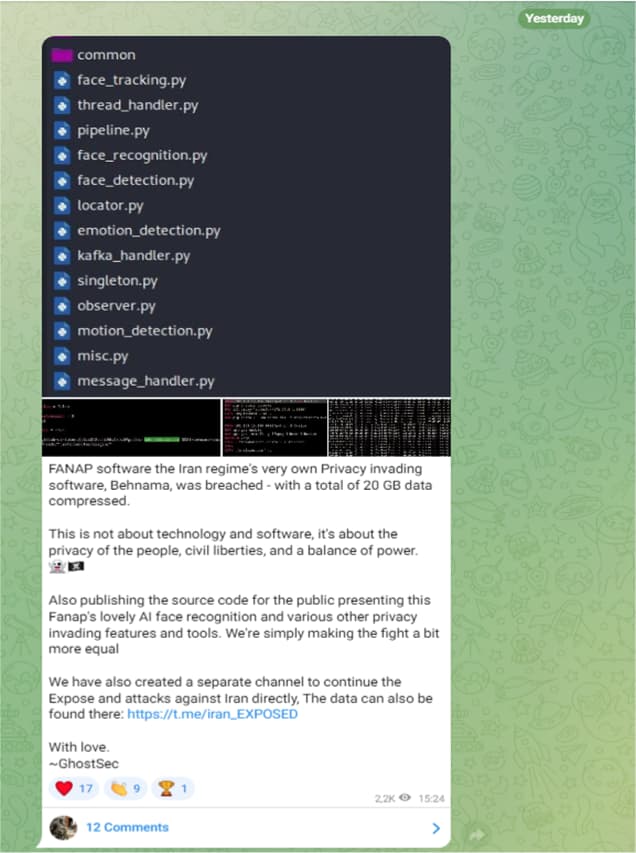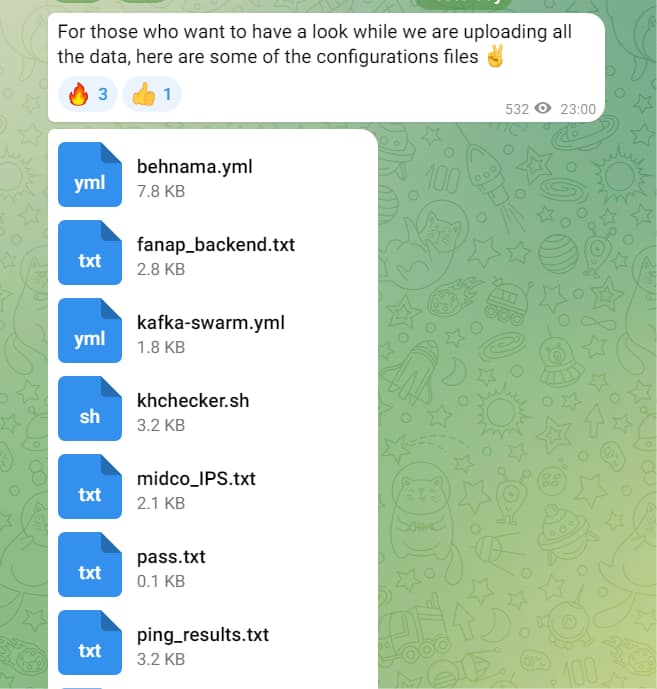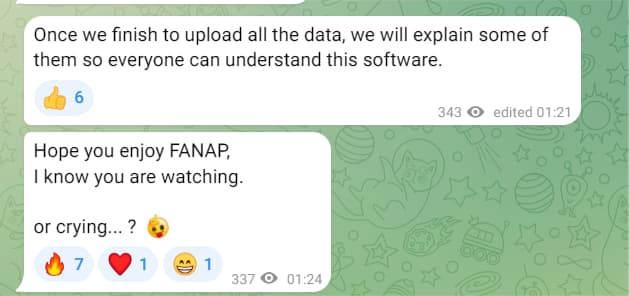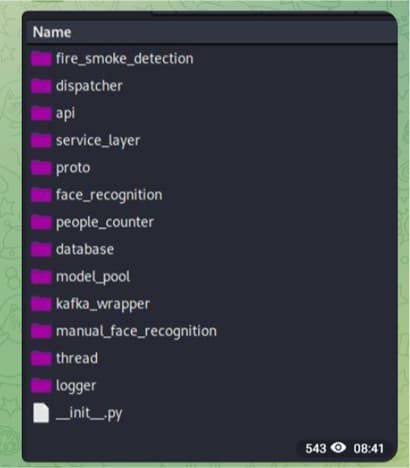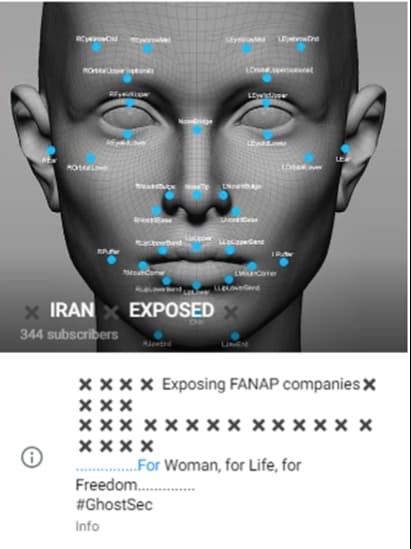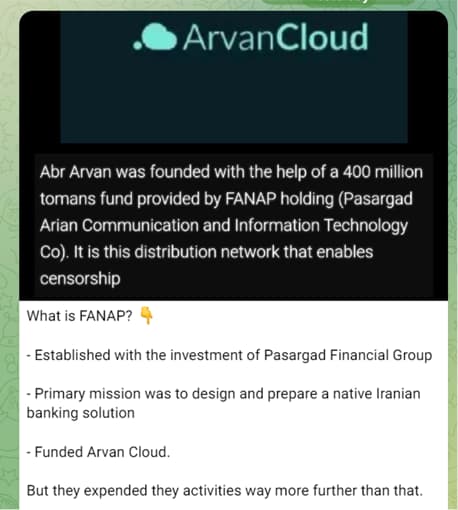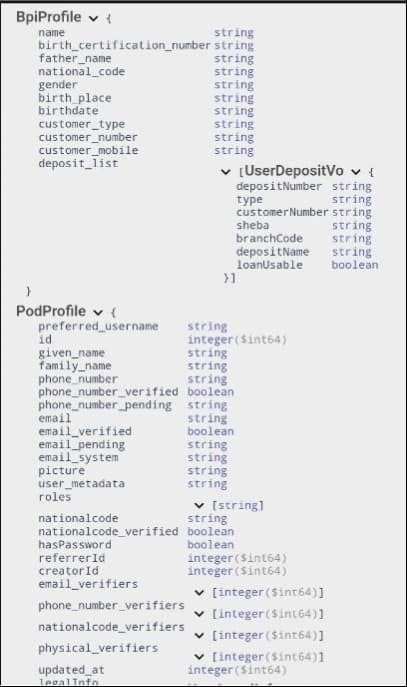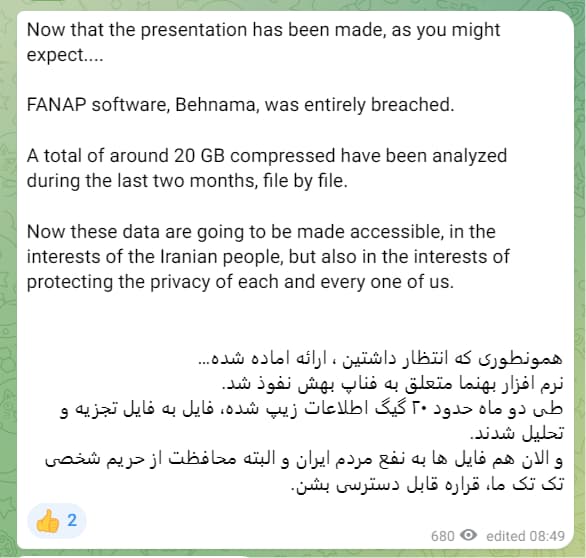- GhostSec claims to breach the FANAP Behnama software, which is apparently used by the Iranian government to surveil and monitor its citizens.
- The breach has uncovered a treasure trove of data, including approximately 20GB of information on face recognition and motion detection systems.
- The revelation of this data comes at a time when Iranian citizens are increasingly concerned about civil rights violations.
- GhostSec plans to make the data public in order to raise awareness about the Iranian government’s surveillance practices.
- The data also includes tools for car number plate recognition and a system linked to the Single Sign-On (SSO) platform.
- At the time of writing, the official website of the company running the software was offline (fanap-infra.com).
In a move that has caught global attention, the hacktivist group GhostSec announced a successful breach of the FANAP Behnama software, unmasking what it terms the “Iran regime’s very own privacy-invading software.”
GhostSec, which was formed around a decade ago to combat online extremism, claims that this breach has uncovered a treasure trove of data – approximately 20GB – including face recognition and motion detection systems utilized by the Iranian government to surveil and monitor its citizens.
The revelation by GhostSec comes at a time when Iranian citizens have expressed widespread outrage over civil rights violations, sparked by the tragic death of Mahsa Amini in custody last year. This incident, followed by waves of protests that have led to more detentions and casualties, has ignited a fervent debate about individual rights and privacy within Iran.
GhostSec, in a statement posted on their Telegram channel, boldly declared, “FANAP software, Behnama, was entirely breached. A total of around 20GB compressed have been analyzed during the last two months.” In a demonstration of their commitment to the cause, the group intends to make this data public, citing a concern not just for the Iranian people’s rights, but also for the broader implications this breach has on privacy worldwide.
The cybersecurity analyst firm Cyberint believes that GhostSec’s actions are aligned with their pursuit of human rights for privacy and equality. Cyberint stated, “This exposure seeks to empower the Iranian populace to demand privacy rights in the wake of increased awareness about government surveillance.”
GhostSec’s move is not just about technology – it represents a fight for civil liberties, a balance of power, and a voice against the intrusive scrutiny that undermines fundamental human rights.
To this end, GhostSec has established a dedicated Telegram channel named “IRAN EXPOSED” where they are systematically sharing insights into the breached data. The group has gone a step further by uploading portions of the compromised Behnama code, including configuration files and API data, providing the public with a behind-the-scenes view of the surveillance software’s capabilities.
The uploaded data allegedly includes tools for facial recognition-based video surveillance, car number plate recognition, and even a system linked to the Single Sign-On (SSO) platform, all of which are intricately intertwined with citizens’ lives to construct profiles for extensive surveillance.

